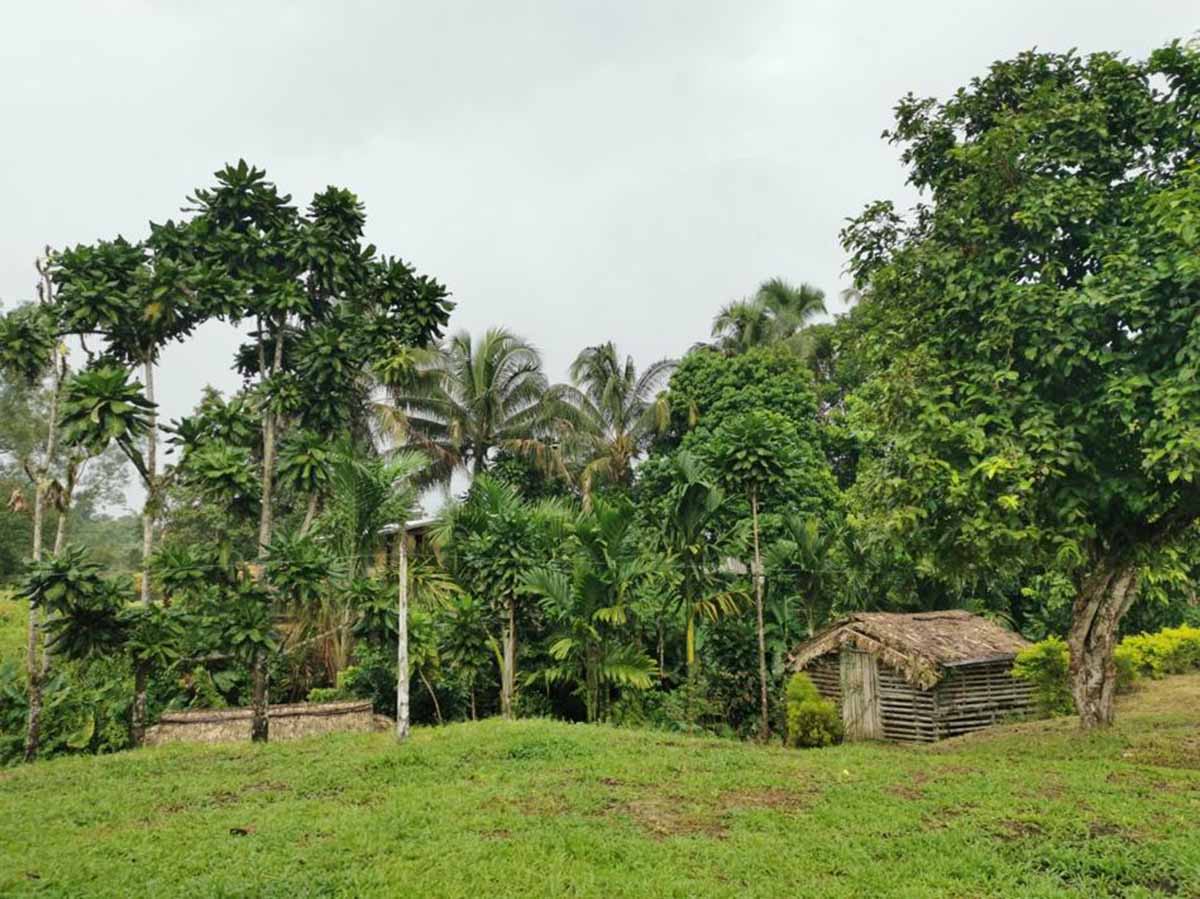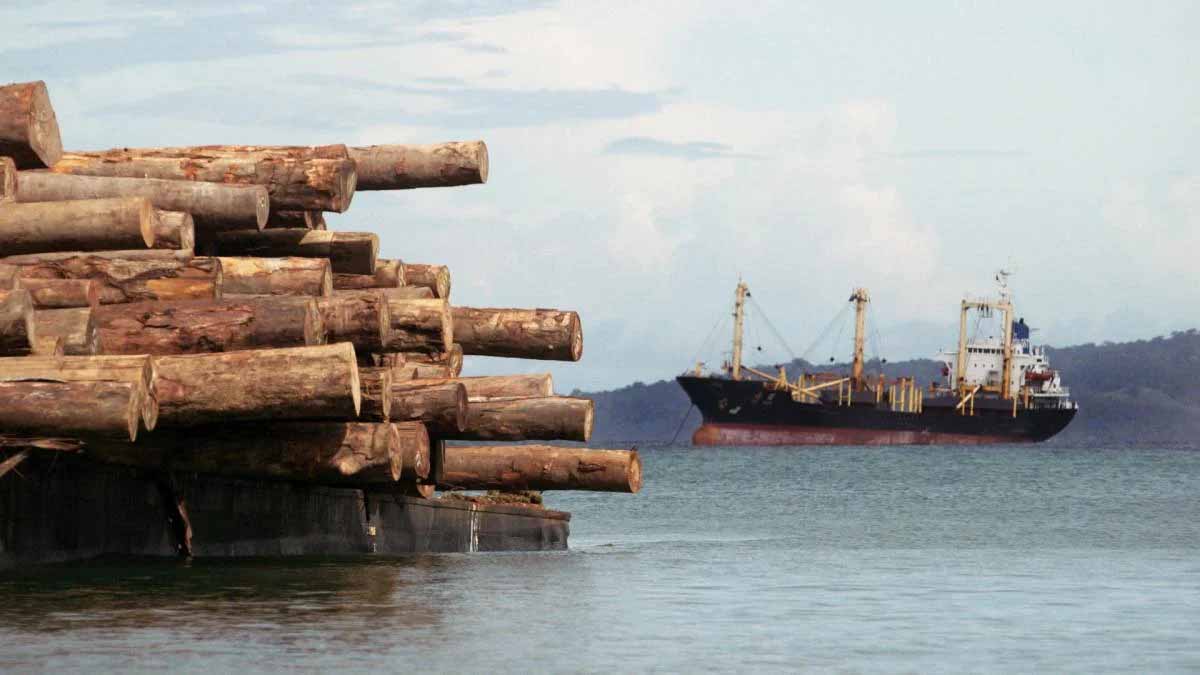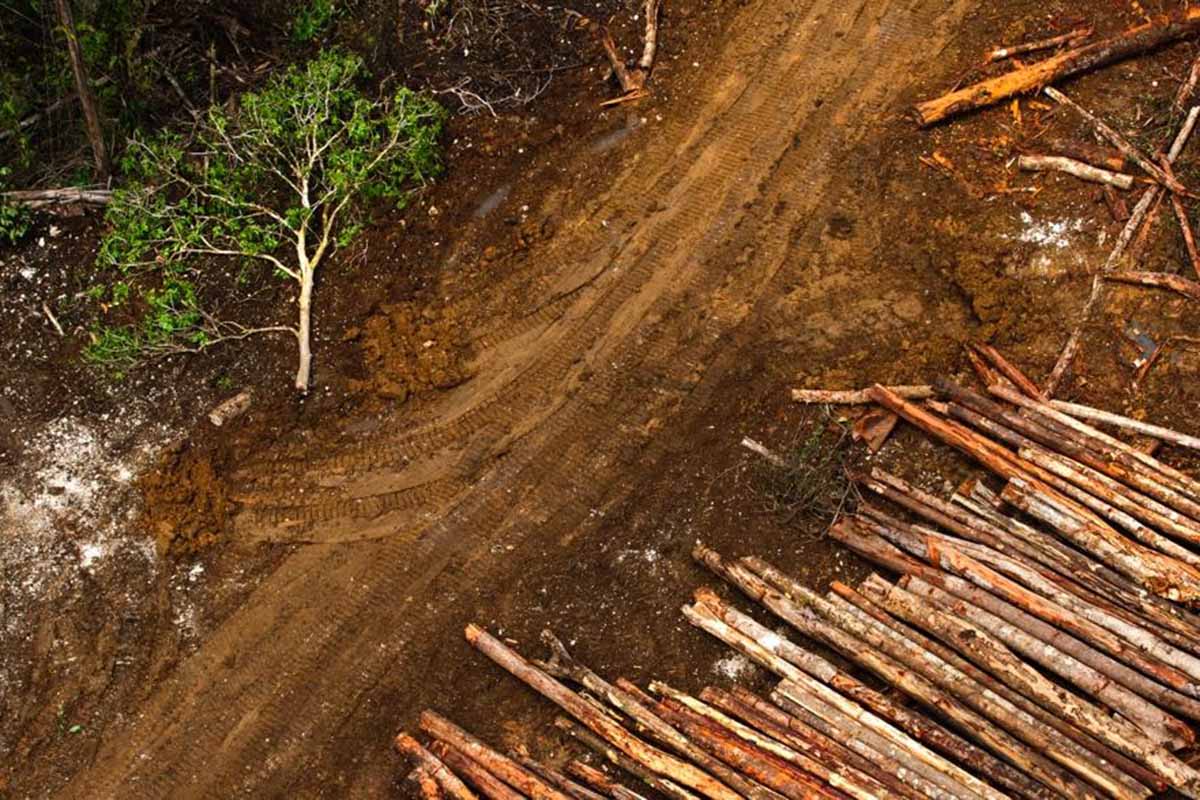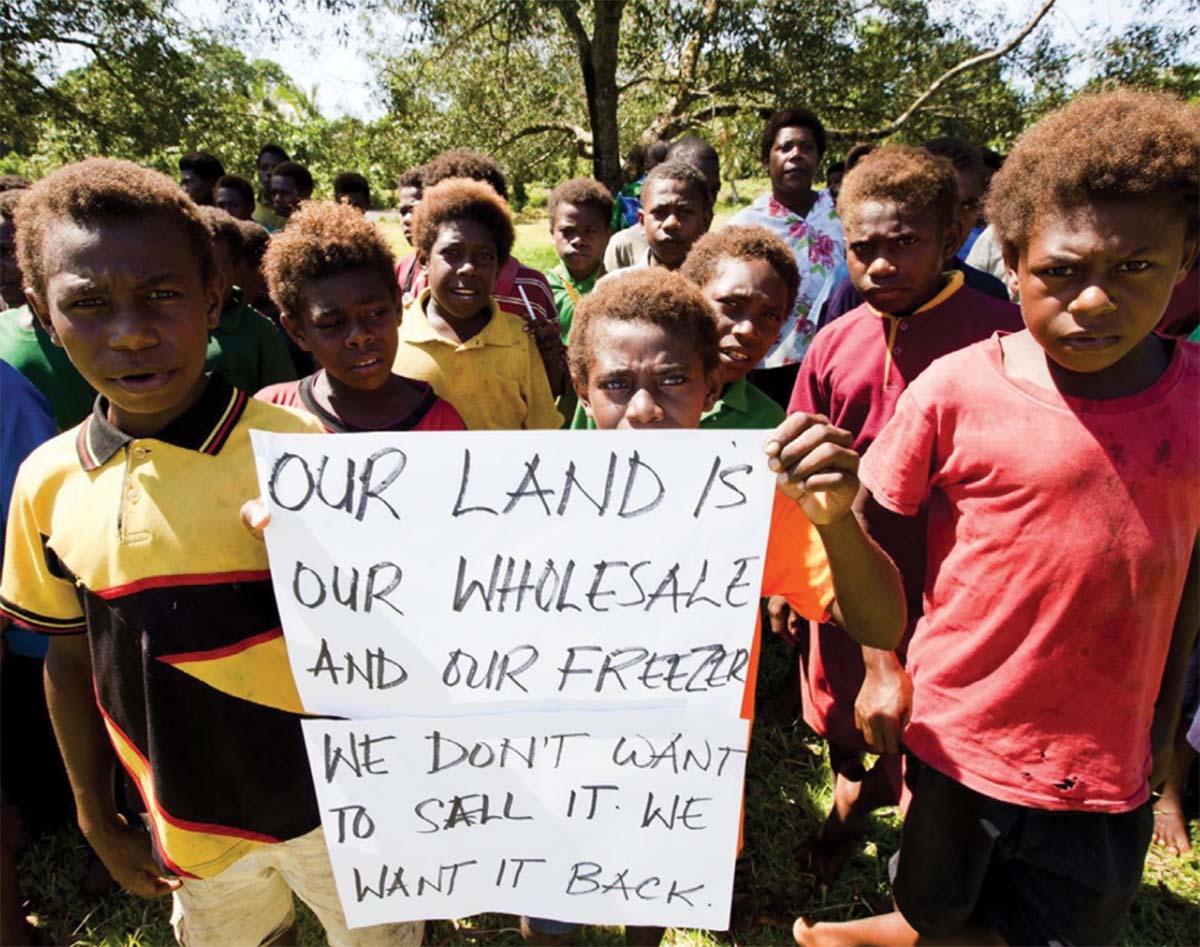
Crackdown on Loggers in Papua New Guinea ft. Eddie Tanago
For Land & Life
“People must be made the center of development, not the interests of logging companies, not the interests of mining companies. When the people are at the center of development, we will see all the good things that come down and people will benefit from it. If not, we will be repeating the same old thing, expecting a different result, but we're going to be progressing backwards instead of going forward.”
Eddie Tanago, ACT NOW
Andy Currier (AC): Hello and welcome back to For Land & Life — the Oakland Institute Podcast. My name is Andy Currier and I’m your host for today’s episode. Around the world, large corporations are ruthlessly extracting natural resources and reaping enormous profits. The countries they operate in, however, are all too often left without any benefits for their own people. It’s a story all too common today and solutions to stop this blatant exploitation are urgently needed. The good news? Governments in the Global South have the power to change course and stand up to the powerful interests responsible for environmental devastation, deforestation, and climate change. Today’s episode will focus on one country that may be turning the corner to do just this.
The island nation of Papua New Guinea has an abundance of natural resource wealth and is home to the world’s third largest rainforest. Since independence in 1975, in pursuit of so-called “development,” successive governments in PNG have allowed some of the world’s largest mining, petroleum, and timber companies onto its shores to extract gold, silver, copper, nickel, oil, natural gas, tropical hardwoods, and palm oil. Over the last decade, Papua New Guinea has become the largest exporter of tropical timber.
While its resources are being exported to the world, the island nation’s economic and social development has failed to match people’s aspirations and government promises.
Today, we have the privilege to speak with Eddie Tanago, the Campaign Manager at ACT NOW, a PNG-based organization, which has been a key advocate against illegal logging and other destructive extractive industries. Welcome Eddie, it is great to have you on. Can you first give our listeners an overview of what ACT NOW does?

Eddie Tanago (ET): Yes, thank you for having me, Andy. ACT NOW is a community advocacy organization. We're based in Port Moresby, Papua New Guinea and were established in 2009. We have a vision for a just and equitable society for all Papua New Guineans. It is founded on a deep spiritual connection to our customary land that underpins our roots, cultural, and biological heritage, and the unique Papua New Guinean ways. The organization is research-based — we work on education and awareness programs to hold government accountable on the key issues that affect the interests of Papua New Guineans. We promote development that is people-centered and that protects the environment and supports open and transparent governance.
AC: Today we are going to focus on the forestry sector in PNG. Before we go into how forests are being exploited, I think our listeners would love to hear more about the rainforest in your country. Can you describe it for someone who has never seen it before? How is it important to you and to the people of PNG?

“It is home to the world's third largest forest and has biologically diverse creatures that are not found anywhere else in the world.[…] But most important of all, it sustains our life and livelihoods because more than half of our population is rural-based.”
ET: Yes, PNG is a country that is very forested. It is home to the world's third largest forest and has biologically diverse creatures that are not found anywhere else in the world. It is home to a huge carbon sink. But most important of all, it sustains our life and livelihoods because more than half of our population is rural-based. And when I say rural-based, the rural-based are the ones that are very much dependent on these forests. And because of the nature of our land tenure system, we are land-based, meaning we are also forest-based too. That means everything we have is derived from the forest. It sort of gives us that sense of belonging, it gives us that sense of identity. When you take away the forests, you're taking away the land as well. Doing this makes the people basically lifeless.
AC: And looking at the companies that are taking away the forest, who are some of the logging firms operating in PNG? Where are they based and where do they primarily export timber?
ET: Despite the importance that I've mentioned of these forests and the land to us, these forests have been under immense strain, especially from large-scale exploitative logging. The logging areas cover a vast area of forest. As of 2014, there were about 298 logging concessions, and that covered about 14 million hectares of rainforest. Since 2015, PNG has been the world's largest exporter of tropical round logs, and the volume that has been harvested reached a peak of about 44 million cubic meters in 2018. We also realize there have been a new number of concessions given since 2020. We found out that there were about 20 new logging export licenses given. Since last year, we found nine new licenses that were given, again, to foreign companies.
Now, who are the ones that are doing the logging? We found out from our recently released report that the top 10 companies responsible for doing most of the logging in the country are Malaysian-based. They have some ties to Malaysia or have some ownership that goes back to Malaysia. These top 10 Malaysian companies have contributed to nearly 70 percent of all around log exports and they have shipped out a staggering number of about 6 million cubic meters of round log exports over this period of time. Most of what is exported is shipped out to China.

“We had people’s land being illegally taken away, as we have seen under the special agriculture business leases (SABLs). Our government found out that most of these logging leases were illegal, and the government commission recommended most of these lands be given back to the landowners.”
AC: Without going into all the technicalities, could you explain how PNG became the largest exporter of tropical timber in recent years? Are these firms operating legally?
ET: A lot of research done by ourselves and by foreign organizations, like Oakland Institute and Global Witness, and by the government, have looked at these questions. It has been shown there are issues of human rights abuses where police have beaten up landowners who go against or try to stop the progress of the project. We had people’s land being illegally taken away, as we have seen under the special agriculture business leases (SABLs). Our government found out that most of these logging leases were illegal, and the government commission recommended most of these lands be given back to the landowners. And the recent Oakland Institute reports in 2016 and 2017 highlighted how logging companies evade paying tax. So, with all this put together, there is strong evidence to say that most of these activities that are happening are illegal.
AC: There have been years of exposés and advocacy from groups such as ACT NOW and the Oakland Institute. You mentioned the Great Timber Heist, the Oakland Institute report that exposed widespread tax evasion that deprived the government of hundreds of millions of dollars. After it was exposed how these companies were exploiting the country, in November 2016, the government acted on these concerns by introducing a progressive tax rate on exported logs with the intent of increasing tax revenue from logging operations. The PNG Forest Industries Association, which represents logging companies in the country, warned that the tax increase, combined with a falling demand for tropical timber, had brought the forest industry to “the brink of disaster,” and resulted in “vanishing” tax revenue for the country. Did this progressive tax rate have an impact in practice? Did it actually bring the industry to the brink of disaster as logging companies complained?
ET: Good question. Because at the time when it was announced, the sector came out saying that they were going to suffer disasters as a result of the increase in tax, we went and actually looked at the log export volumes to see if they'd actually faced some problems. What we realized was so interesting, because we found out that these companies were actually making money, they were not suffering losses. So, this was in contradiction to what the sector was saying, that it would face “disaster.” They did really make a lot of money during the period, so it wasn't a loss for them. They were not facing a “brink of disaster.” No.
AC: That is good to know and to push back against that corporate propaganda. So, now in May 2021, PNG’s Internal Revenue Commission (IRC) announced a crackdown on the logging industry, accusing it of being “one of the most delinquent sectors insofar as tax compliance is concerned, and guilty of ‘egregious’ transfer pricing, ‘entrenched’ tax evasion, and ‘deceptive behavior.’” The Commission then launched an audit of 20 companies which could lead to criminal prosecutions. Just a few weeks ago, these audits led to concrete action for the first time, with a major fine announced for one logging company — can you explain what happened and its significance?
ET: Yes, it's been a very long process. First, in 2016 and 2017, there was this groundbreaking report by Oakland Institute and also advocacy by ACT NOW. After this work, the government agreed to bring in the OECD for international assistance on tax inspection. This was through the Tax Inspectors Without Borders program. In 2019, Sam Koim, the head of the IRC, was appointed. Previously, he was a very strong fighter of corruption. He announced that 20 audits of logging companies were in progress. Now, in 2021, IRC published a damning assessment of logging companies not paying tax. They were doing transfer pricing and there was financial misreporting. Now, finally, in June 2023, we have the first logging company penalized with a fine of K140 million [US$ 40 million]. But still, that's not the end, they're likely to appeal. We still have another 19 audits to be completed. While we welcome the announcement made by the IRC, there is still more work to be done in ensuring that this company's penalties are paid.

AC: Right. And as the work of ACT NOW and the Oakland Institute has shown, a lot of these logging firms evade corporate tax by claiming losses, like you said, despite exporting millions of cubic meters of tropical timber. You mentioned transfer pricing, which, if our audience is unfamiliar, this is when prices are manipulated and goods are transferred between related parties or companies that are within the same multinational group. And again, it's done to reduce the taxable profits. So, it's good to hear that you're hopeful there will be more fines announced after the completion of the audit moving forward. Do you think this type of tax evasion is prevalent in other sectors of PNG's economy?
ET: Yes, definitely. The IRC talks about these practices being prevalent, especially in the resource sector as a whole. That includes mining, oil and gas, and major multinational companies that are notorious with evading paying corporate taxes. There are also many examples of tax evasion across other sectors. But logging companies have been at the forefront of, not just tax evasion, but other illegalities such as the theft of forest resources. There are no environmental controls; there are violations and human rights abuses against local communities who especially resist these exploitative activities by foreign-owned logging companies. So, yes, this practice really does exist not only in logging, but in many other major sectors, especially in the resource sector in PNG.

AC: I want to take a step back now. In 2020, ACT NOW, Jubilee Australia, and the Oakland Institute published a report called From Extraction to Inclusion, which found the PNG economy has relied on the large-scale extraction of abundant minerals and other natural resources — under the illusion it will improve the lives of its citizens. By most indicators, as we’ve mentioned, PNG is faring worse than its Pacific neighbors, and any progress that has been achieved does not reflect the huge value of the resources extracted. While the crackdown on tax dodging companies is a welcome step, what are some of the broader, more comprehensive changes that need to be made to put people back at the center of PNG’s development policies?
“We have actually not met our development aspirations. We have all the resources that we've gotten out from mining, oil and gas, and logging. But where have all those gone? There is nothing to really show for it here in Papua New Guinea.”
ET: Thank you. That's a very big question and a very important one as well. Something that has not been looked at closely in the last 40 years since our independence. In that particular report, we looked at Papua New Guinea all the way back to independence. And we looked at PNG's development timeline and goals, which were made to meet its development aspirations and objectives. Instead of pursuing an agriculture-based economy, it transitioned to one that is based on resource exploitation. Now, what we've just discussed earlier on about tax evasion by logging companies — this is a byproduct of those decisions that we made for our economic pathway. It's not only in logging. It's not. It's all-over other resource extractive projects.
Where are we now, since independence? We have actually not met our development aspirations. We have all the resources that we've gotten out from mining, oil and gas, and logging. But where have all those gone? There is nothing to really show for it here in Papua New Guinea. We have services that are really in dire need, the basic health and education services that are meant to reach the rural population, who are land-based and are at home. It doesn't trickle down to them. Where we have gone wrong is that we are repeating the same old things, expecting a different result. We are doing the same old things by opening new mines, giving more logging concessions, giving more fisheries licenses, thinking it will improve people's lives. In fact, we are even worse off than before.
Now, what could be done to change this? First and foremost, the government and foreign governments, foreign donors, and financial institutions must stop attacking and taking customary land, because customary land is the basis of our being, the key to our development. If you attack customary land, you are basically making people's life extinct. It is the foundation of our development, so they should not be taking customary land. Two is to stop all oil palm expansions and put a moratorium on all new licenses for logging. Put a stop to it. Three, people must be made the center of development, not the interests of logging companies, not the interests of mining companies. When the people are at the center of development, we will see all the good things that come down and people will benefit from it. If not, we will be repeating the same old thing, expecting a different result, but we're going to be progressing backwards instead of going forward.
AC: Thank you. I think that's a really good summary to a broad question, but very clear on what needs to happen to kind of build off of this, this positive step that PNG has taken to really, like you said, put people at the center of development. Thank you, Eddie. For listeners who want to keep up with the important work being done by ACT NOW, we'll provide links to your website and some social media below.
ET: Thank you so much, Andy.
AC: That concludes today's episode. Thank you again, Eddie, for being with us. For any of the reports mentioned today. You can find them on the Oakland Institute website. If you're interested in staying up to date on the latest developments on PNG — especially as these audits continue and hopefully lead to more fines in the weeks and months to come — be sure to subscribe to our Reporter Newsletter and follow us on social media. Thank you as always for listening. Until next time.
